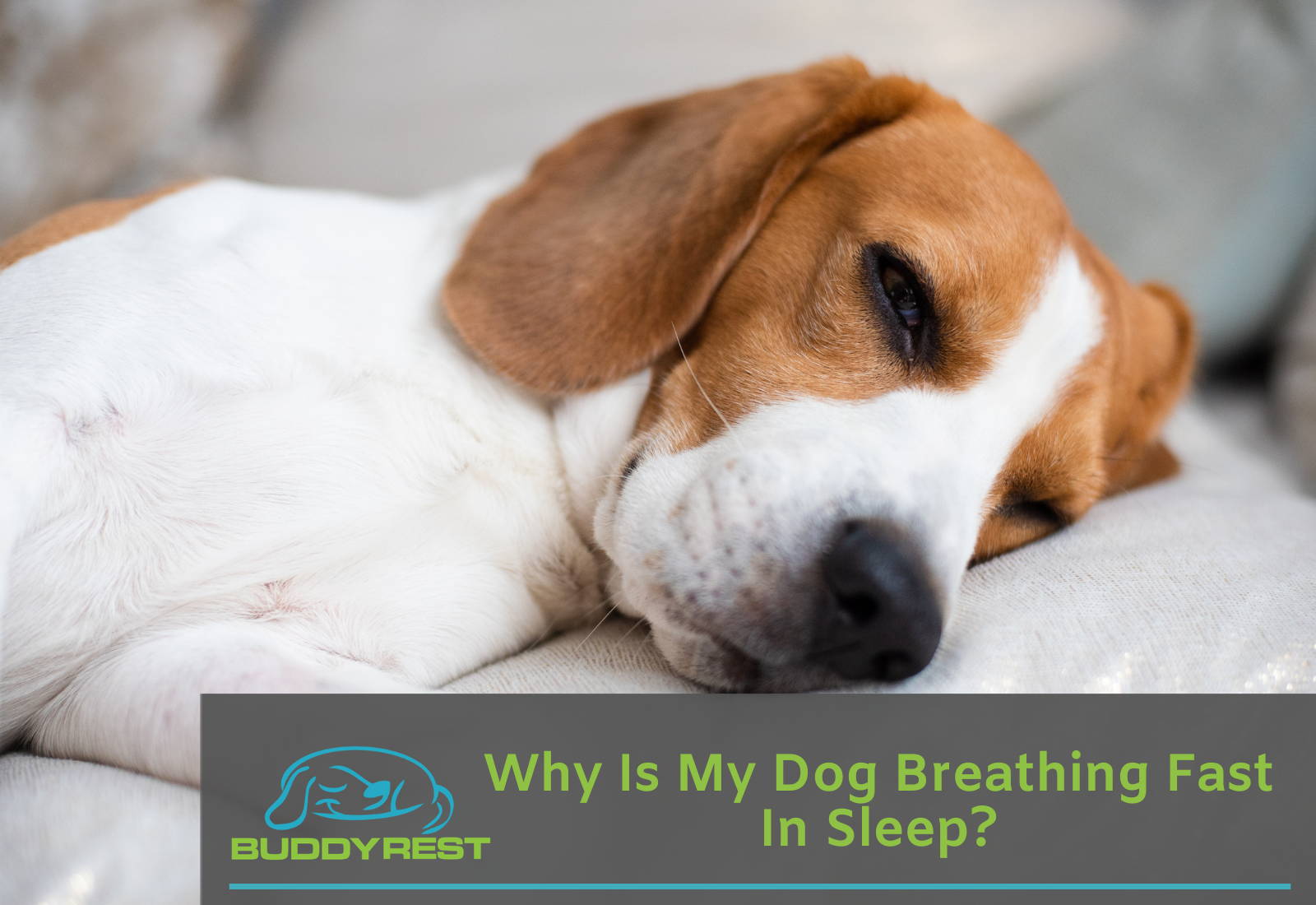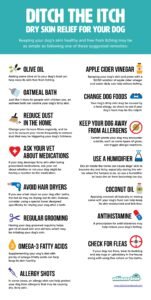Dogs often pant for various reasons, even when they are resting. If your dog is panting at night, it can be concerning. So let’s read: Why is My Dog Panting at Night?
Panting is a normal behavior for dogs, but it can also signal something more serious. Dogs may pant due to heat, anxiety, or health issues. At night, when your dog should be calm, unusual panting can feel alarming. Understanding the cause can help ease your worries and ensure your dog is healthy.
This guide will explore common reasons for nighttime panting and what you can do about it. Knowing what to look for can make a big difference in your dog’s comfort and your peace of mind.
Table of Contents

Credit: www.pacificsantacruzvet.com
Introduction To Nocturnal Panting In Dogs
Dog owners often notice their pets panting at night. This behavior can be puzzling. Understanding why dogs pant while resting is important. It helps owners address any potential issues. Let’s explore nocturnal panting in dogs.
Setting The Stage For Nighttime Behavior
Dogs are creatures of habit. They have specific routines for sleeping and resting. At night, many dogs settle down and relax. However, some dogs begin to pant. This may happen even when they are not active. Various factors can cause this behavior.
- Temperature: Warm rooms can make dogs uncomfortable.
- Anxiety: Stressful situations can lead to panting.
- Health Issues: Certain conditions can cause breathing changes.
- Age: Older dogs may pant more due to health problems.
The Normalcy Of Panting In Dogs
Panting is a natural behavior for dogs. They use it to cool down. It is normal during or after exercise. However, panting at rest may raise concerns. In many cases, it is still normal.
Here are some common reasons for panting at night:
- Relaxation: Dogs may pant when they feel safe.
- Dreaming: Just like humans, dogs dream. This can cause panting.
- Thirst: Dogs may pant if they are thirsty.
- Medications: Some drugs can cause increased panting.
Understanding your dog’s panting can ease worries. Always consult a vet if you have concerns. Regular check-ups ensure your dog stays healthy.
Heat Regulation And Panting
Dogs often pant while resting at night. This behavior is usually linked to their way of regulating heat. Understanding this process is key to knowing your dog’s health.
The Canine Cooling System
Dogs do not sweat like humans. They rely on panting to cool down. Here’s how it works:
- When a dog pants, moisture evaporates from the tongue.
- This process helps lower their body temperature.
- Panting increases airflow to the lungs.
This system is effective but can cause excessive panting at times. Dogs might pant more if they feel hot or stressed.
Room Temperature And Its Effects
Room temperature plays a big role in your dog’s comfort. High temperatures can lead to increased panting. Here are some factors to consider:
| Temperature Range | Panting Behavior |
|---|---|
| Below 60°F (15°C) | Minimal to no panting |
| 60°F – 75°F (15°C – 24°C) | Occasional panting |
| Above 75°F (24°C) | Frequent and heavy panting |
Ensure your dog has a cool place to rest. Provide water and a fan if needed. Keeping the room temperature comfortable is essential for their health.
Anxiety And Stress Factors
Dogs can show signs of stress, even while resting at night. Panting is a common sign of anxiety. Understanding the cause of this behavior is important. It helps you support your dog better.
Identifying Signs Of Stress
Look for these signs to know if your dog is stressed:
- Panting: Heavy breathing even when it’s cool.
- Whining: Vocal sounds that seem unusual.
- Shaking: Trembling or quivering body.
- Hiding: Seeking a quiet place away from activity.
- Excessive barking: More vocal than usual.
- Restlessness: Unable to settle down or relax.
Common Stress Triggers At Night
Several factors can cause your dog to feel stressed at night:
| Trigger | Description |
|---|---|
| Noise | Loud sounds like thunder, fireworks, or traffic. |
| Separation anxiety | Feeling alone when family members are absent. |
| Change in routine | New schedules or changes can upset your dog. |
| Unfamiliar environment | New places or unfamiliar smells can be stressful. |
| Health issues | Pain or discomfort can cause distress. |
Watch for these triggers to help your dog feel safe. Creating a calm environment at night can reduce stress. Consider a cozy bed or soft music. Your support makes a difference.
Medical Conditions Linked To Panting
Panting in dogs can signal serious health issues. It often indicates discomfort or stress. Understanding the medical conditions linked to panting is crucial. Two major concerns are respiratory issues and pain-related causes. Both can affect your dog’s well-being.
Respiratory Issues And Heart Disease
Respiratory problems can cause dogs to pant heavily. Issues like asthma or pneumonia can lead to labored breathing. Here are some common respiratory conditions:
- Asthma: Inflammation of the airways.
- Pneumonia: Infection in the lungs.
- Bronchitis: Chronic cough and breathing difficulties.
- Heart Disease: Affects blood flow and oxygen supply.
Panting may be a sign of reduced oxygen levels. Dogs with heart disease may also show fatigue or weakness. Regular vet visits help in early detection.
Pain-related Panting
Panting can be a response to pain. Dogs often cannot express discomfort verbally. Signs of pain can include:
- Restlessness
- Whining or whimpering
- Changes in behavior
Conditions causing pain include:
- Arthritis: Joint pain and stiffness.
- Injuries: Any trauma can cause discomfort.
- Abdominal Pain: Issues like pancreatitis.
Monitoring your dog’s behavior can help identify pain. Consult a vet if panting persists, especially at night.
Effects Of Aging On Nighttime Panting
As dogs age, their bodies change. These changes can affect their sleep. Many senior dogs may start to pant while resting at night. This panting can worry pet owners. Understanding why this happens can help.
Senior Dogs And Altered Sleep Patterns
Senior dogs often have different sleep patterns. They may wake up more often during the night. This can lead to panting.
- Older dogs might have trouble getting comfortable.
- Their sleep may be lighter and more disrupted.
- They may need to go outside more frequently.
Panting can be a sign of restlessness. Many older dogs feel anxious at night. This anxiety can cause them to breathe heavily.
Age-related Health Concerns
Health problems can increase panting in senior dogs. Common issues include:
| Health Issue | Symptoms |
|---|---|
| Arthritis | Pain, difficulty lying down |
| Heart Disease | Coughing, fatigue, increased panting |
| Lung Problems | Shortness of breath, rapid breathing |
Regular vet check-ups are essential. They can spot these issues early. Treating health concerns can reduce nighttime panting. Keep an eye on your dog’s behavior. Changes can signal a need for help.
Exercise And Late-night Activity
Panting in dogs can mean different things. One reason is their activity level. Dogs need exercise during the day. Late-night activities can also affect their sleep. Understanding this is key to helping your dog rest better.
Daytime Activity Impact
Daytime exercise plays a big role in your dog’s health. Dogs need regular playtime and walks. If they don’t get enough activity, they may feel restless at night.
Here are some important points about daytime exercise:
- Physical health: Exercise keeps their body fit.
- Mental stimulation: Activities help keep their mind sharp.
- Stress relief: Playtime reduces anxiety and stress.
When dogs have a busy day, they tend to sleep better at night. A tired dog is a happy dog. Make sure your dog gets enough exercise during the day.
The Need For A Stable Routine
Dogs thrive on routine. A stable schedule helps them feel secure. Set specific times for walks and play.
Benefits of a stable routine include:
- Predictable exercise time.
- Better sleep patterns.
- Improved behavior at night.
Consistency is important. Dogs are creatures of habit. A regular routine can help reduce nighttime panting. Aim for a balanced mix of exercise and rest.
Diet And Hydration
Diet and hydration play a crucial role in your dog’s overall health. What your dog eats and drinks can affect their comfort at night. Proper nutrition and hydration help keep your dog calm and relaxed. Let’s explore how meal timing and content, as well as hydration, can impact nighttime panting.
Meal Timing And Content
Feeding your dog at the right time is important. Late meals may lead to discomfort. A full stomach can cause restlessness. Here are some tips for meal timing:
- Feed your dog at least two to three hours before bedtime.
- Choose a balanced diet with quality ingredients.
- Avoid heavy meals close to bedtime.
The type of food matters too. Look for high-quality proteins and healthy fats. Avoid fillers and artificial ingredients. A well-balanced diet helps reduce anxiety and promotes better sleep.
Ensuring Proper Hydration Before Bedtime
Hydration is vital for your dog’s health. Water supports digestion and regulates temperature. Here are some tips for proper hydration:
- Always provide fresh water throughout the day.
- Monitor water intake, especially in hot weather.
- Limit water intake close to bedtime to avoid nighttime bathroom trips.
Keep a consistent schedule for hydration. Ensure your dog drinks enough water during the day. This helps avoid dehydration at night.

Credit: www.dutch.com
Comfort And Sleep Environment
Creating a comfortable sleep environment is crucial for your dog’s well-being. A calm atmosphere helps them relax. It can reduce panting at night. Dogs need a safe and cozy space to sleep soundly.
Creating A Calming Bedtime Atmosphere
A calming atmosphere can help your dog rest better. Here are some tips:
- Keep the bedroom quiet. Avoid loud noises.
- Dim the lights to create a peaceful setting.
- Maintain a comfortable temperature. Dogs prefer cool spaces.
- Use calming scents. Lavender can help soothe your dog.
These simple changes can make a big difference. Your dog will feel more secure and relaxed.
Choosing The Right Bed And Sleep Accessories
Choosing the right bed is important. A good bed supports your dog’s body. It can reduce discomfort and stress. Here are some factors to consider:
| Feature | Importance |
|---|---|
| Size | Your dog should fit comfortably. |
| Material | Choose soft, durable fabrics. |
| Support | Look for orthopedic options for older dogs. |
Don’t forget about sleep accessories. Blankets and pillows can add comfort. These items can make a familiar space for your dog.
When To Seek Veterinary Help
Panting in dogs can mean many things. Sometimes, it is normal. Other times, it signals a problem. Knowing when to seek help is important for your dog’s health.
Monitoring For Persistent Symptoms
Watch for signs that may indicate a health issue. Look for:
- Excessive panting that lasts for a long time.
- Panting that occurs even in cool environments.
- Signs of distress, like whining or pacing.
- Changes in appetite or drinking habits.
- Unusual lethargy or fatigue.
Keep a close eye on your dog. Take notes if you notice persistent symptoms. This information can help your vet.
The Importance Of Regular Check-ups
Regular vet visits are crucial for your dog’s health. They help catch problems early. During check-ups, vets can:
- Assess your dog’s overall health.
- Identify underlying issues that may cause panting.
- Update vaccinations and preventative care.
- Provide guidance on diet and exercise.
Bring your dog to the vet at least once a year. Older dogs may need more frequent visits. Regular check-ups can help keep your dog happy and healthy.
Preventive Measures And Care Tips
Understanding why your dog pants while resting at night can help you provide better care. Here are some effective preventive measures and care tips to consider.
Maintaining A Healthy Lifestyle
A healthy lifestyle helps reduce panting during rest. Here are key points to follow:
- Regular Exercise: Daily walks and playtime keep your dog fit.
- Balanced Diet: Provide nutritious food for overall health.
- Weight Management: Keep your dog at a healthy weight.
Use this simple table to track your dog’s exercise and diet:
| Day | Exercise (minutes) | Food Amount (cups) |
|---|---|---|
| Monday | 30 | 2 |
| Tuesday | 40 | 2 |
| Wednesday | 30 | 2 |
Stress Reduction Techniques
Stress can cause panting. Here are ways to help your dog relax:
- Safe Space: Create a quiet area for your dog.
- Calm Environment: Keep noise levels low at night.
- Relaxation Techniques: Use gentle petting or soothing music.
Practice these techniques regularly. They can help your dog feel safe. A relaxed dog is less likely to pant during rest.

Credit: buddyrest.com
Frequently Asked Questions
Why Does My Dog Pant At Night?
Panting at night can indicate anxiety, discomfort, or pain. If your dog is overly warm, they may also pant to cool down. Monitor their behavior and environment. If the panting persists, consult your veterinarian for a thorough examination to rule out any underlying health issues.
Is Nighttime Panting Normal For Dogs?
Occasional nighttime panting can be normal for dogs. It often occurs during deep sleep or dreams. However, if the panting is frequent and excessive, it may signal stress or health problems. Always observe your dog closely and seek veterinary advice if you notice unusual patterns.
What Should I Do If My Dog Pants Excessively?
If your dog pants excessively while resting, first check their environment for heat or stressors. Ensure they have a comfortable, cool place to relax. If the panting continues or is accompanied by other symptoms, consult your veterinarian to address potential health concerns.
Can Anxiety Cause My Dog To Pant At Night?
Yes, anxiety can cause dogs to pant, even at night. Changes in routine, loud noises, or separation anxiety may trigger this response. Providing a calm environment, engaging in regular exercise, and using calming aids can help alleviate anxiety. If anxiety persists, consider professional guidance.
Conclusion
Panting while resting at night can be concerning for dog owners. It often indicates stress, pain, or other health issues. Observing your dog closely can help you understand their needs. Always consult a vet if you notice unusual behavior. They can provide guidance and support for your pet.
Keeping your dog comfortable and relaxed is key. Regular check-ups ensure your furry friend stays healthy. Pay attention to their habits and changes. This helps you care for them better. Your dog’s well-being is important for a happy life together.



